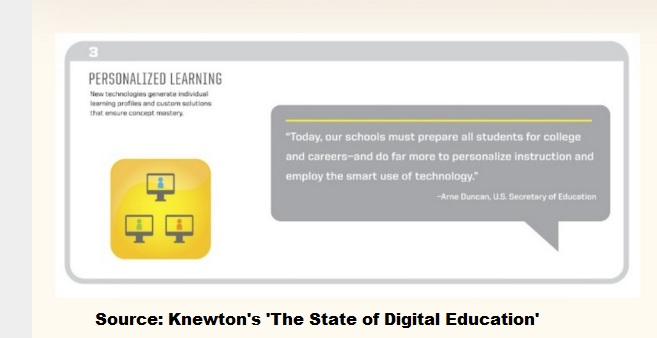
Anti CCSS Warriors, if you have seen my last two articles, then you know the ESSA (Every Student Succeeds Act) has mandates for digital education embedded, a massive and invasive data collection study in the works and more.
But what about the digital education push from your state’s level?In case you haven’t read the articles, please note both are very detailed, so be sure you take your time reading them. Today’s is also jam packed, but it it imperative we read and share!
Thursday’s Article: https://www.commoncorediva.com/2016/02/04/essa-and-digital-overload/
This Past Weekend’s Article: https://www.commoncorediva.com/2016/02/05/weekend-news-the-ies-and-the-essa/
The U.S. Dept. of Ed’s Latest Propaganda:
In preparing for this article, I stumbled upon the U.S. Dept. of Ed’s latest Twitter video. It fits right into today’s question concerning the state levels for digital education. What a slick sales pitch for College/Career Readiness AND digital learning!
See:
https://amp.twimg.com/v/dcb95af5-160a-47b5-a48a-5a293dfe2e18
Now that you have watched the video, look at this screen shot (also from the Knewton Presentation seen above).
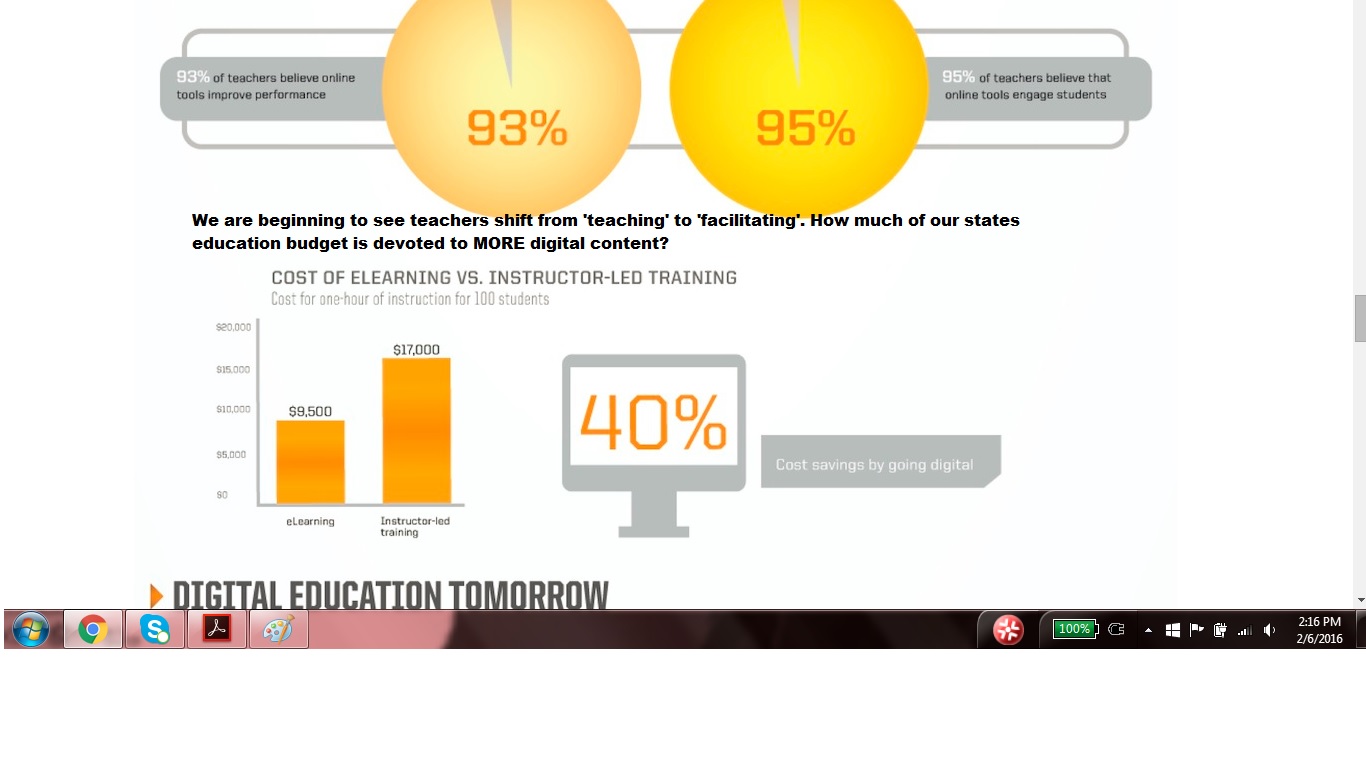 If you would like to see the entire Knewton Presentation, see:
If you would like to see the entire Knewton Presentation, see:
https://www.knewton.com/infographics/the-state-of-digital-education-infographic/
(*Note: Knewton is hardly anti-CCSS or for that matter, anti-ANYTHING that goes with them.)
See:
1) http://curmudgucation.blogspot.com/2014/03/who-puts-scary-in-pearson-meet-knewton.html
2) Access this YouTube video from my fellow anti CCSS Warrior, Nicole Revels:
[youtube https://www.youtube.com/watch?v=VUdYwSpDhws&w=560&h=315]
So, What’s in Your State?
The video above was specific to an NC meeting. However, look at the information presented, it doesn’t stop at the NC state lines! The data mining, digital education tie is in ALL 50 States! So where do you look to find the amounts of money, people, and legislation allowing all this to happen? How will the newly passed ESSA law (with all its digital education mandates) change all this already in place?
1) State Policy Network (SPN) claims their digital education toolkit is the best available. However, I tend to see their toolkit as a subjective view NOT an objective one. Why? First, look at the toolkit’s main page and you will see an embedded video from KIPP ( a very big CCSS Machine member) See my previously published article: https://www.commoncorediva.com/2014/12/18/tech-thursday-the-latest-faux-pas-in-education-workforce/
Then, check out the Gates Foundation Grant Database, where KIPP has been generously awarded money for alignment to all things CCSS: http://www.gatesfoundation.org/How-We-Work/Quick-Links/Grants-Database#q/k=KIPP
The KIPP connection is but one clue the SPN Toolkit is subjective. There is more:
See: http://nonprofitquarterly.org/2013/11/14/corporate-money-in-network-of-right-wing-state-policy-think-tanks/
There are 5 goals the SPN states as to WHY digital education is so vital today. You can see the excerpt, “Evaluate students (based on what they know, not how long they are in a place);
Certify and evaluate teachers (based on how well they teach what they know, not the credentials obtained); Evaluate courses and materials (based on state standards); Provide access (instead of getting in the way); and Pay for all of it (with proper accountability).”
To see the entire Toolkit: http://www.spn.org/digital_education/
2) SETDA and the Friday Institute have a June 2015 report detailing the 50 States and Digital Education. Before we look at it, however, consider that BOTH are also Pro-CCSS/CCR/CTE (Common Core State Standards, College and Career Readiness, Career Tech Education) See: https://www.commoncorediva.com/2015/05/15/fom-sbac-and-parcc-revisited/
Then: http://ladyliberty1885.com/2015/08/30/possibly-the-most-arrogant-and-insulting-common-core-article-ive-seen-in-a-while/
According the the 2015 Report, there are 5 States heralded as leaders in digital education:
Alabama, North Carolina, Utah, Indiana, and Kentucky. There are also 5 main components of digital education every State will have, thanks to ESSA.
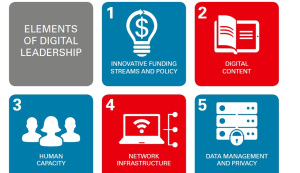
As I have shared with you in past 2 articles detailing the digital mandates in ESSA, the Infrastructure will be one of the biggest clues as to where to look in your State. What are the plans for better internet in your area? Are your service providers upgrading their systems? Has your state recently passed legislation for Rural Education funding? There are other similar questions for you to ask.
To access the June 2015 Report (where just below this screen shot you will see the descriptions of how each of the 5 goals will be obtained): DigitalLearningExemplars_June2015
As an example of legislation passed, here in NC, to support digital learning, read this excerpt from the Report, “State Law 2013-12 requires the North Carolina
Department of Public Instruction (NCDPI) to assist districts in the transition from textbooks to digital materials by 2017. These materials must be effective for all learners and align with the curriculum and standards. Such a law promotes progress toward some level of digital learning statewide.” What if you don’t live in one of the 5 States mentioned as leaders? The Report will also detail all the other States and where they are in the path of mass alignment.
Since AL is considered to be the #1 leader in the shift to digital education, see this article about the Governor pushing for more fiber optic connections throughout the State:
http://www.centerdigitaled.com/k-12/Alabama-Governor-Pushes-Fiber-Optic-Cables-for-Schools.html
If you would like to see how SETDA is modernizing the E-rate in your State, see:
http://www.setda.org/priorities/equity-of-access/e-rate-modernization/
So Where in ESSA are the Libraries?
Based on the ESSA Final Conference Report (I shared the document with you in the Thursday article mentioned above), here are page numbers concerning digital education and libraries:
1) Page 138, school libraries and their programs to be updated to digital
2) Page 323, school libraries and their programs must offer digital courses to all school leaders
3) Page 343, school libraries and their programs to lead all school employees in digitally led courses as part of ‘safe schools’
4) Page 384, possible U.S. Dept. of Ed Secretary awarded grants for school libraries and digital led programming
5) 387, all libraries (school or public) are included, with museums, non-profits, and post-secondary educational instututions
6) Page 515, after school programs via extended public library services/hours
7) Page 1,000, authorizes the LSTA (Library Services and Technology Act) grant money to be used for technology upgrades and/or purchases for digital education for all
8) Page 1,037, embeds the Museum and Library Services Act, MLSA
Related Information:
Kipp has partnered with several post-secondary institutions in America to continue the CCSS Machine’s alignment. See:
http://www.kipp.org/our-approach/kipp-through-college/college-partnerships
The Gates Foundation-friendly Education Week has an article you will need to access as well. It deals with the E-rate legislation (a federal level law which impacts all 50 States) and its role in digital education. See: http://blogs.edweek.org/edweek/DigitalEducation/2015/10/e-rate_application_toolkit.html
In contrast, I wrote an anti CCSS Warrior article about the E-rate legislation back in 2014 for Prevent Common Core’s website. See: http://preventcommoncore.com/?p=1223
The Federal Learning Registry is slam full of massive data mining via digital education.
See: https://www.commoncorediva.com/2015/01/12/monday-musings-assessments-data-mining/
SETDA’s role in ridding the world of printed textbooks:
https://www.commoncorediva.com/2014/11/01/sic-em-saturday-creatively-turning-the-usa-common/
For LSTA (Library Services and Technology Act) see my previously published article:
For how much MLSA (Museum and Library Services Act) grant money your State has been awarded, see:
https://www.imls.gov/grants/grants-states
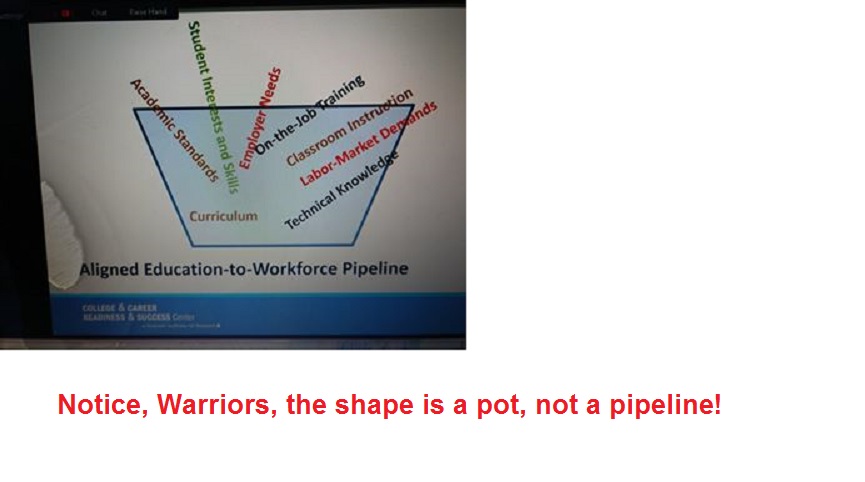
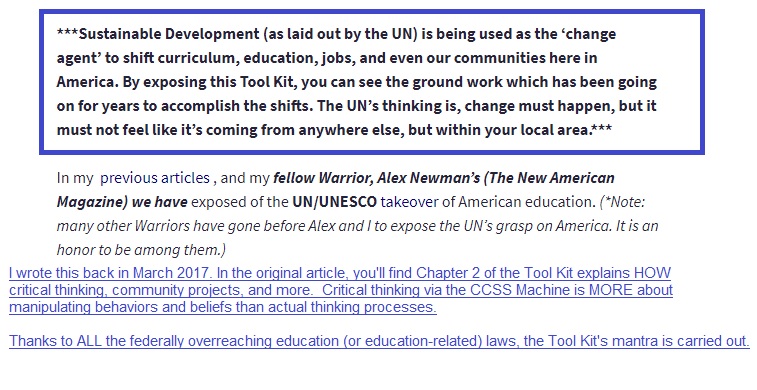

6 thoughts on “State Digital Education”